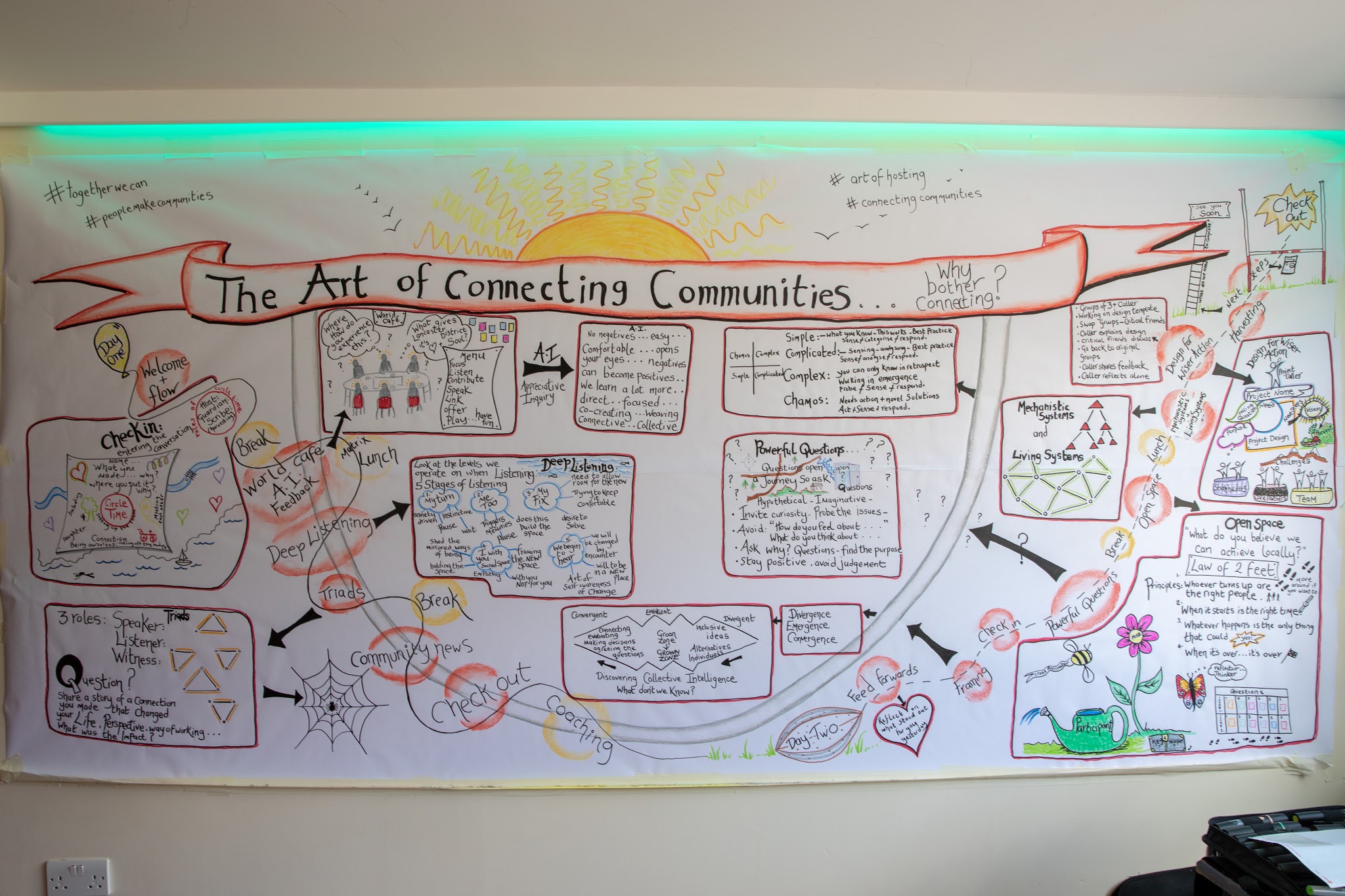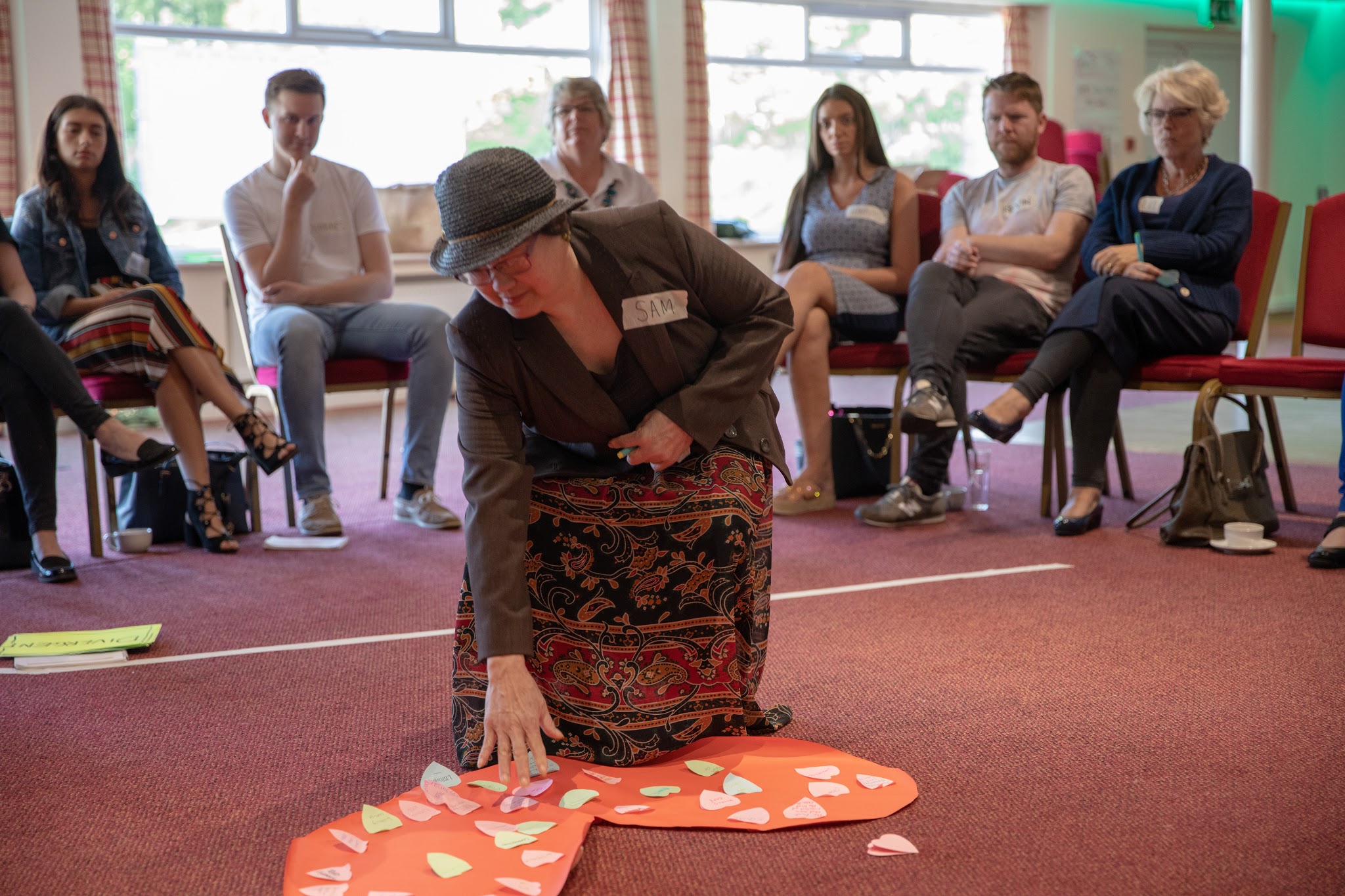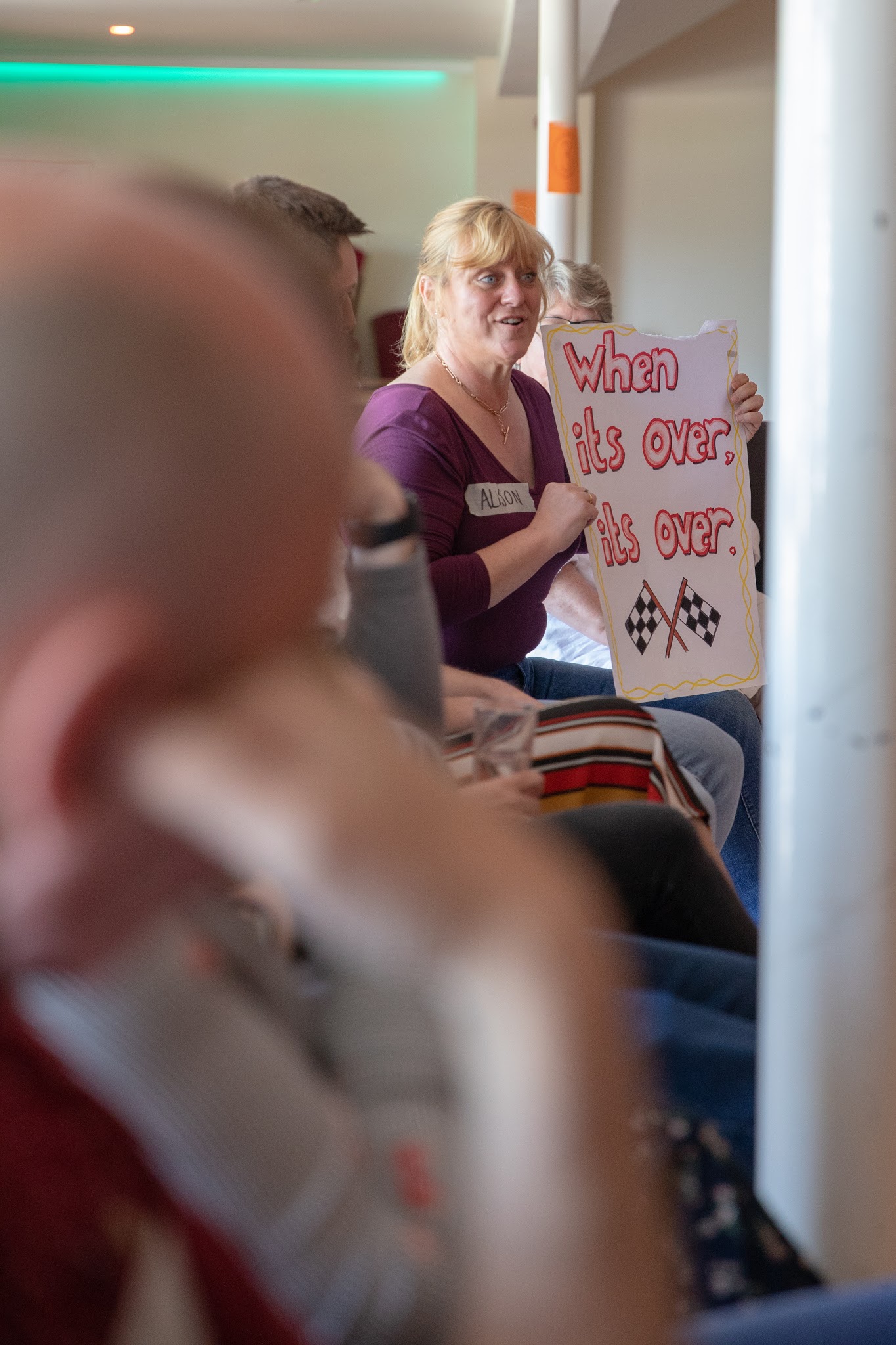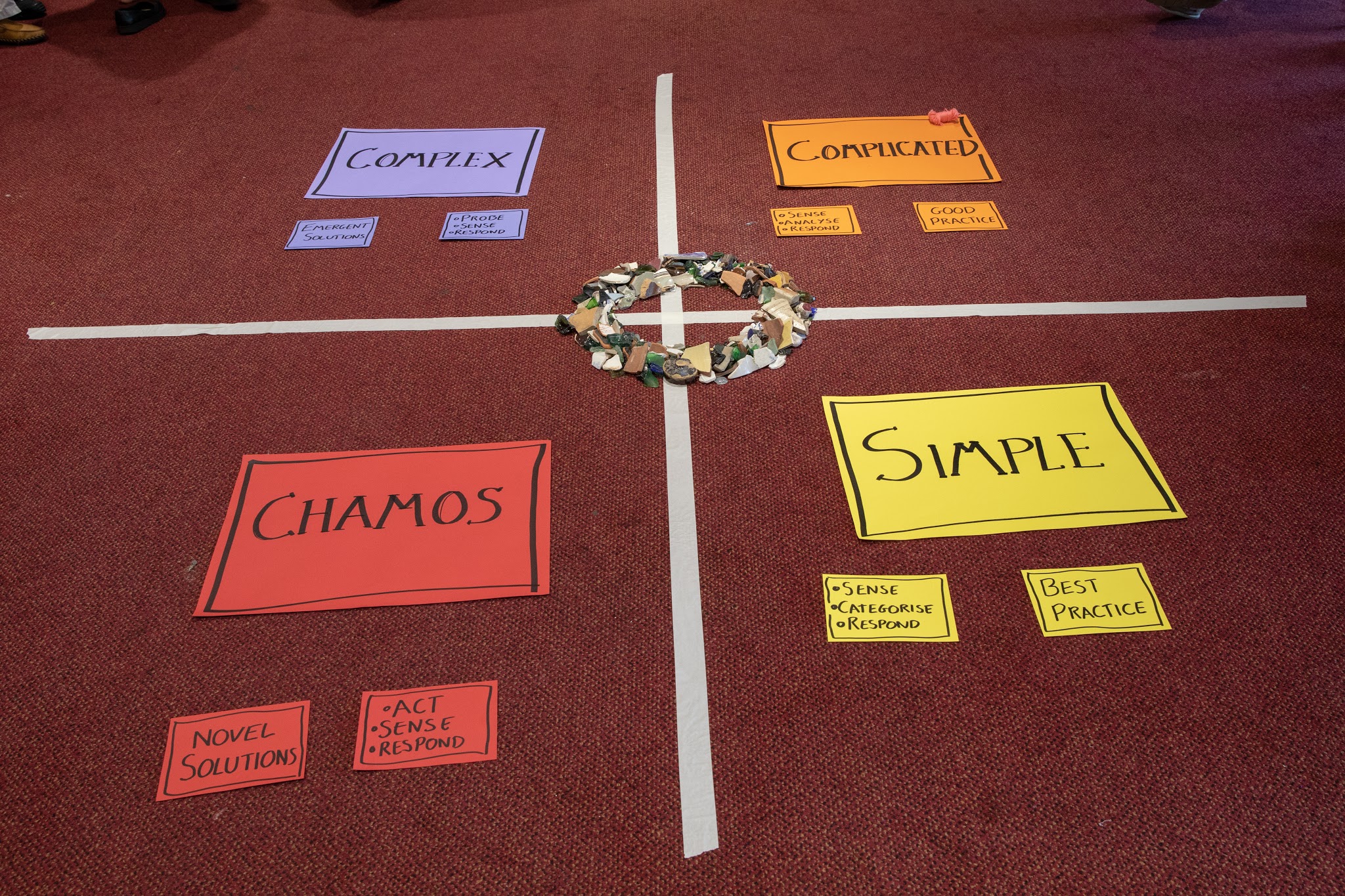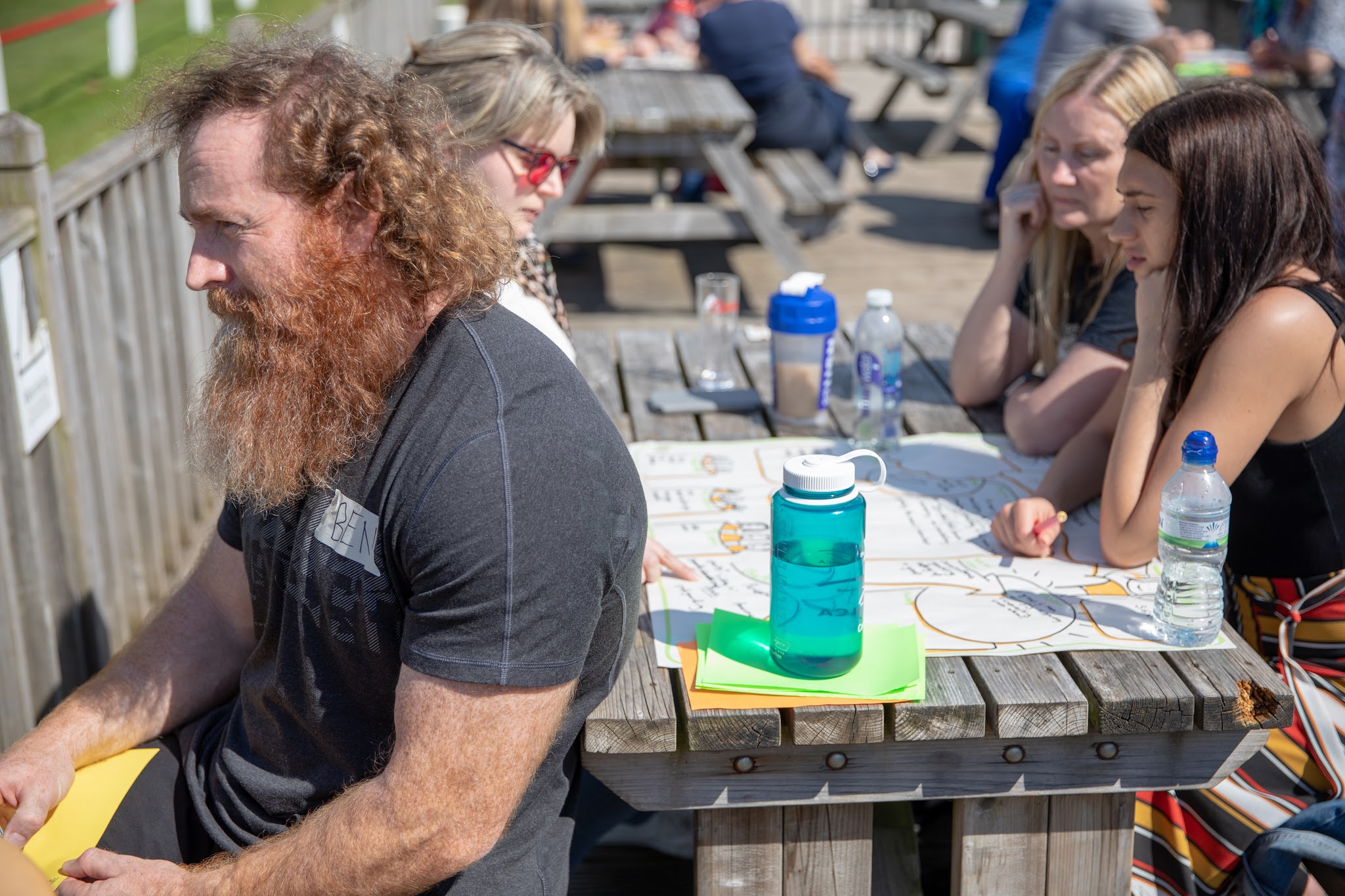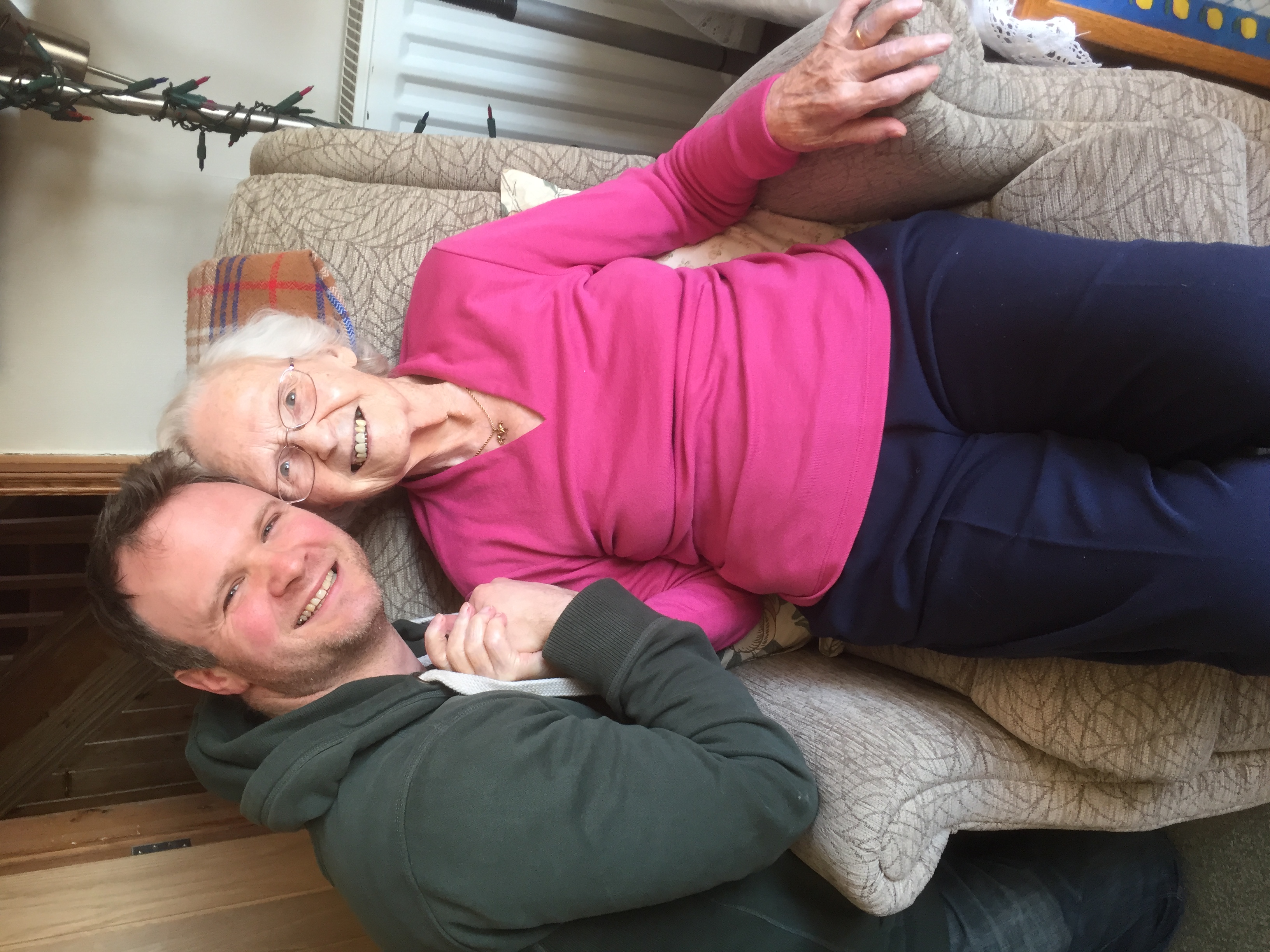As with any training, we kicked off day 2 with a “feed forward” – there are loads of different ways you can do this, and the idea is to bring day 1 into day 2 and remind everyone what has happened in the previous day. It helps people to be ‘present’ and have a sense of continuity. Day 2 is always hosted by participants in the training, with the team acting as coaches for them. Our hosts decided to use a large heart in the middle of a circle and asked each of us to write a few words of reflection about what had really stood out for us on Day 1. It was a great way of collating a collective sense of what had happened and gave us a really positive platform to build on.
Following this, Mike Love, a really experienced and excellent host from Leeds, who has been such a key person in helping us on our journey in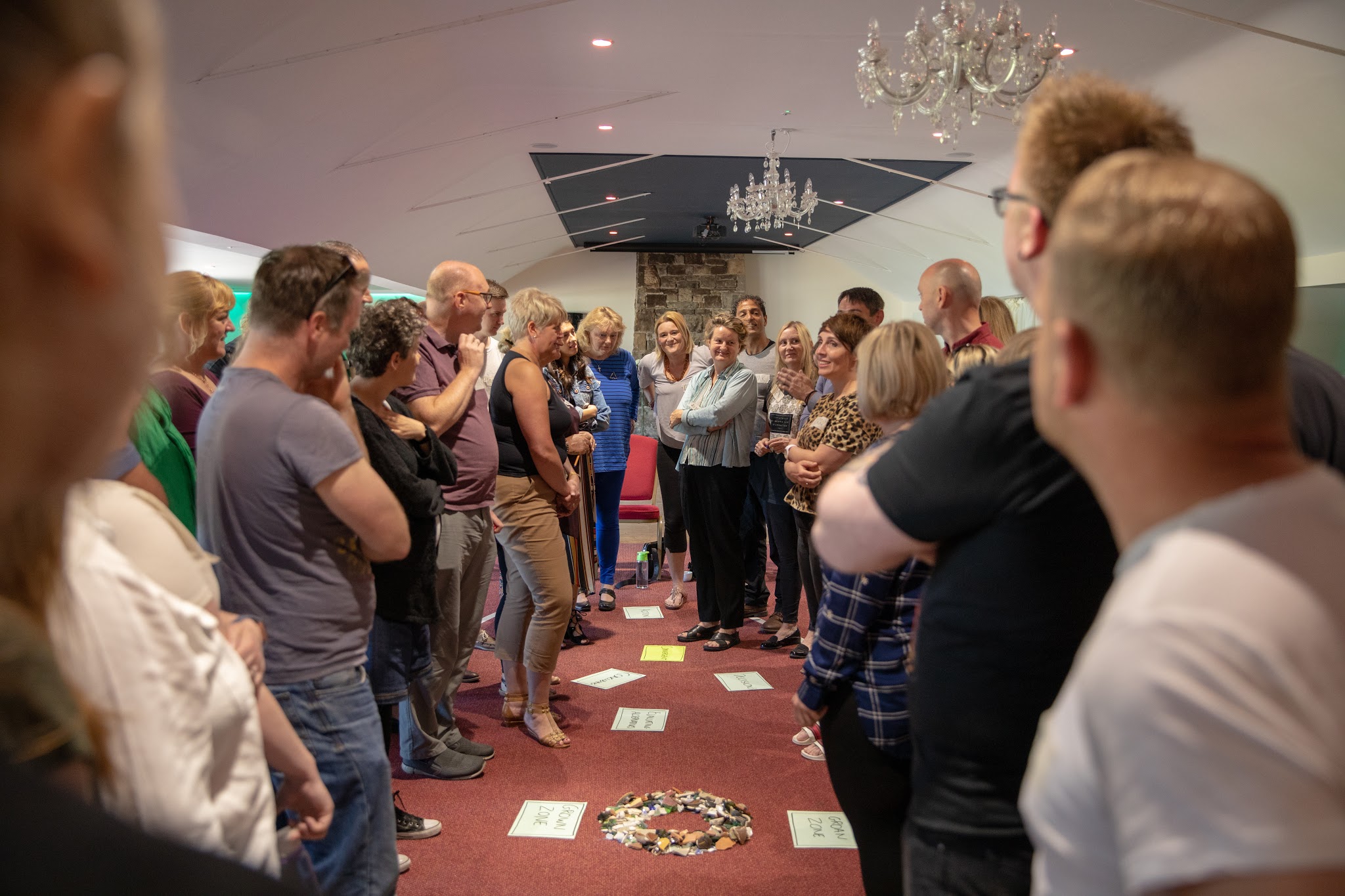 Morecambe Bay, framed the day for us by helping us think through the process of opening up conversations (divergence), how to hold the groan zone (emergence of ideas) and the process of bringing a conversation into a point of agreement/next steps (convergence). The diamond of participation, as well call it, is a great way to understand our own preferences in conversations. Some of us love to open things up with great questions and get a conversation. Some of us a really comfortable hold the space for the emergence of ideas and love to see what is generated. Others of us, like to focus more on tasks and getting something delivered. The truth is that all of these are REALLY necessary if we’re going to create spaces in which we can discover collective intelligence. There was a real ‘aha’ moment when someone from the public sector said – “Our consultations are not really consultations at all, in any way. They are really a con and an insult”. This insight really provoked some great discussion!
Morecambe Bay, framed the day for us by helping us think through the process of opening up conversations (divergence), how to hold the groan zone (emergence of ideas) and the process of bringing a conversation into a point of agreement/next steps (convergence). The diamond of participation, as well call it, is a great way to understand our own preferences in conversations. Some of us love to open things up with great questions and get a conversation. Some of us a really comfortable hold the space for the emergence of ideas and love to see what is generated. Others of us, like to focus more on tasks and getting something delivered. The truth is that all of these are REALLY necessary if we’re going to create spaces in which we can discover collective intelligence. There was a real ‘aha’ moment when someone from the public sector said – “Our consultations are not really consultations at all, in any way. They are really a con and an insult”. This insight really provoked some great discussion!
Having fed forward and framed the day ahead together, we then checked in before heading into Open Space! Open space is a fantastic way of having the conversations that the people in the room want to have! Ours was framed around the question: “What do you believe we can achieve locally?” There were so many great conversations!
Then it was time for more theory. Mike Love, helped us again with thinking through ‘complexity theory’. We work in incredibly complex and chaotic systems and yet we often approach and measure them as if they were simple and complicated. If we are really going to learn to work well, we have to examine what it is we believe and how we see complexity, so we can learn to be far more adept in how we work in connection and relationship to others.
‘Designing for Wiser Action’ is another art of hosting tool, which is extremely useful if you are designing a project and would love to get the help and insight of others in knowing how to make it as effective as possible. We took most of the rest of the afternoon for people to work on ‘live projects’ which they wanted help with or needed to refine – another immersive practice where we learnt as we went along. This is a great tool, but also takes some guts! There is a point in the process where, having designed your project, you listen as other people come and find all the holes in it and offer some alternative solutions, whilst you have your back turned, cannot interject no try to justify yourself! Brutal love in action!
We ended the day by checking out, talking about our next steps and inviting people to help us plan for the 3rd day of training, where we will welcome back other members of the community of practice. We have now seen 250 people go through Art of Hosting/Art of Connecting Communities training in Morecambe Bay and are growing a wonderful network of hosts, who are learning to host ourselves, be hosted and host others (alone and together) in a way that creates space for new things to emerge. I am full of hope for the future!
